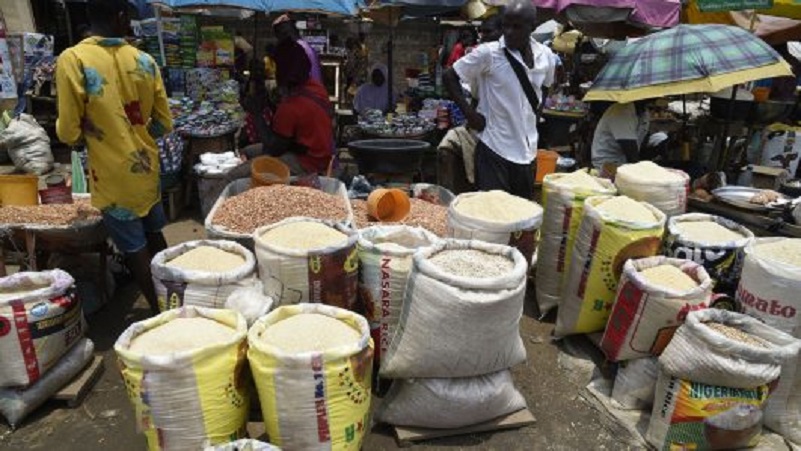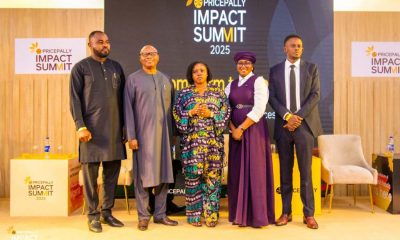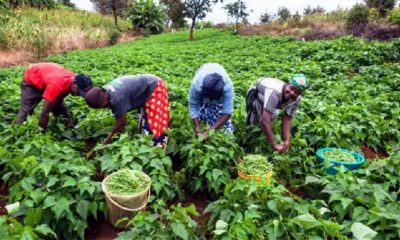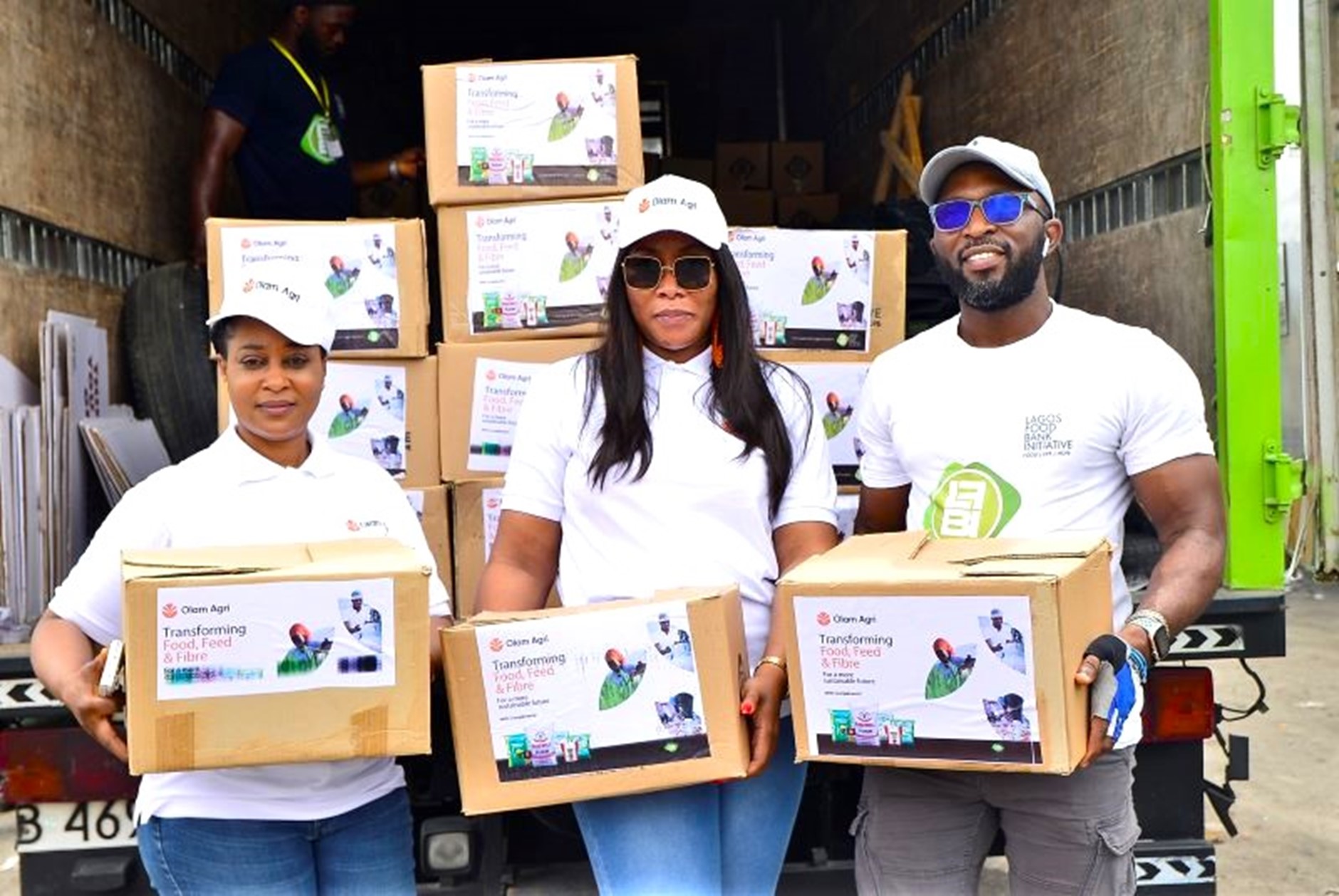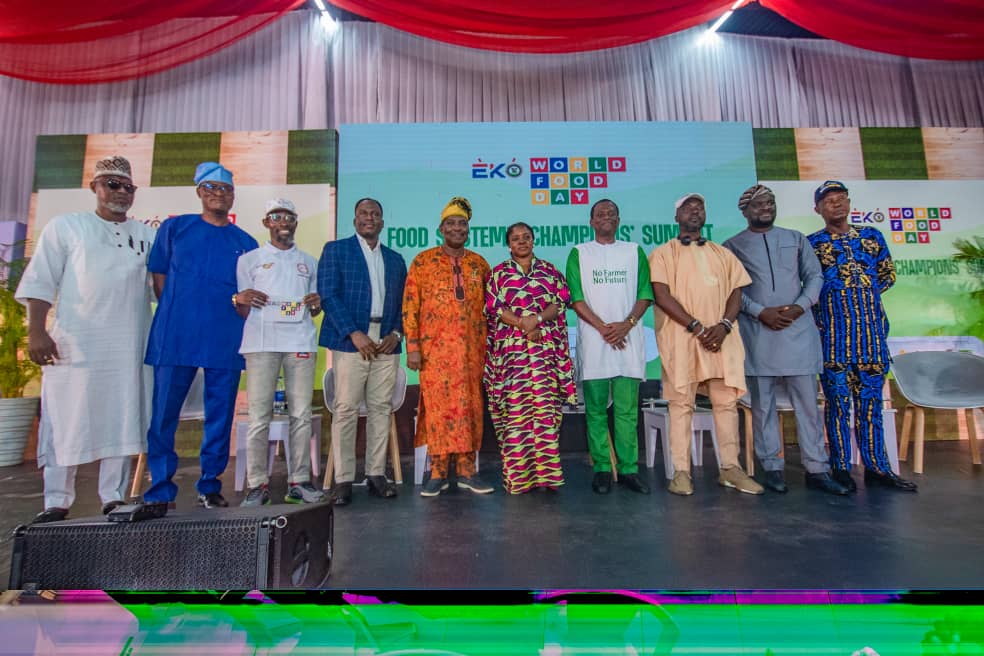World
Discussing Food Security in Ethiopia and other Poorest Nations in the Horn of Africa
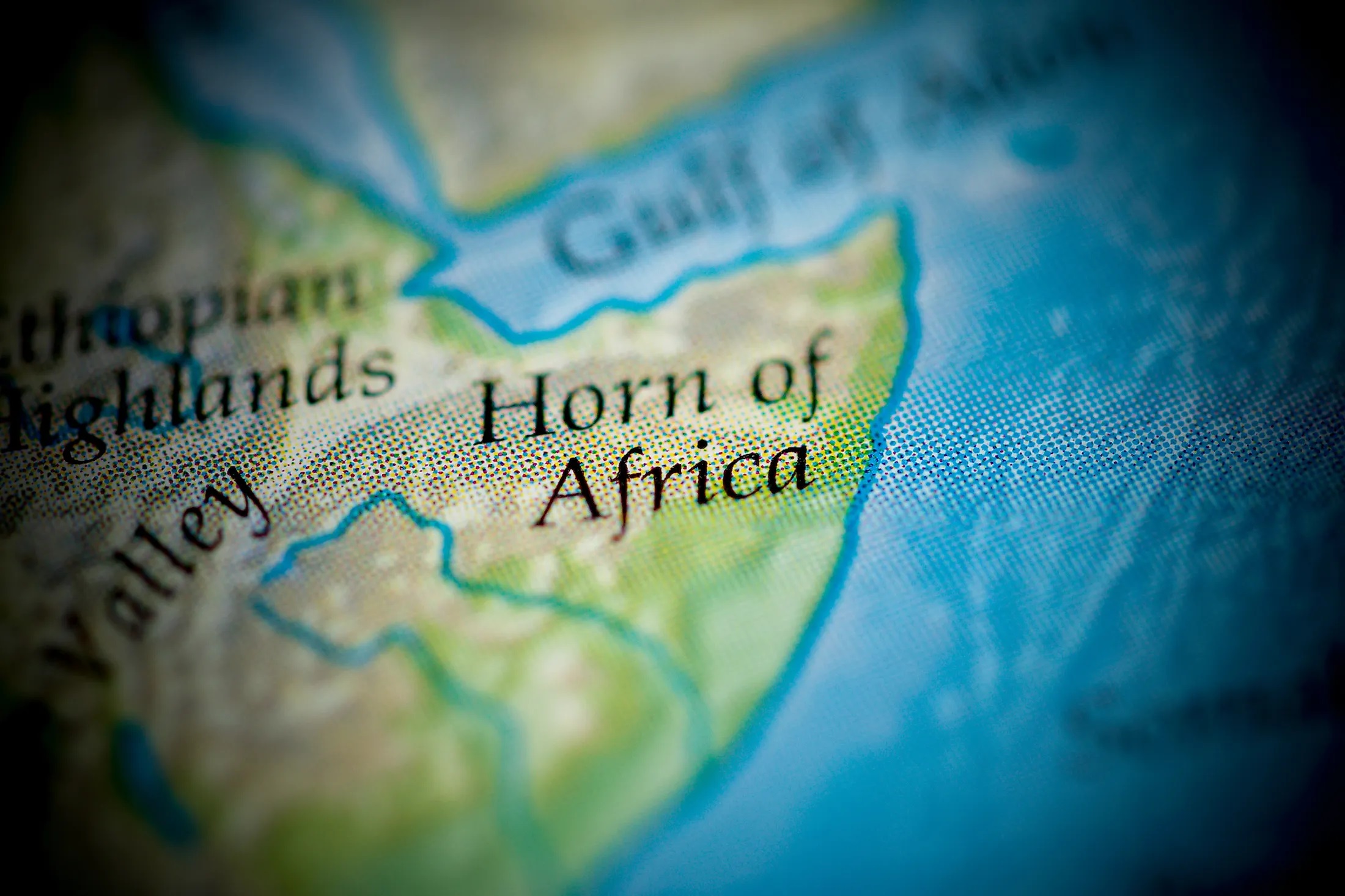
By Kestér Kenn Klomegâh
By geographical definition, Ethiopia is located in East Africa. It is landlocked in the Horn of Africa and shares borders with Eritrea, Djibouti and Somalia. With its long chequered history, Ethiopia is discussed from different and divergent perspectives, including its geography, politics, economy and culture. Many politicians, academic experts and researchers also look at Ethiopia’s role within the region and its external relations on the global stage.
Ethiopia has been, these several years, in the news media. In May 1998, a border dispute with Eritrea led to the Eritrean–Ethiopian War, which lasted until June 2000 and cost both countries an estimated $1 million a day. This had a negative effect on Ethiopia’s economy but strengthened the ruling coalition. In early November, Ethiopia and one of its ethnic groups, the Tigray, were desperately looking for a peace deal that sent them to South Africa.
For his efforts in ending the 20-year-long war between Ethiopia and Eritrea, Abiy Ahmed was awarded the Nobel prize for peace in 2019. After taking office in April 2018, 46-year-old Abiy released political prisoners, promised fair elections for 2019 and announced sweeping economic reforms.
With approximately 115 million population, the majority is still impoverished despite its huge land and other natural resources. Within Ethiopia is a vast highland complex of mountains and dissected plateaus divided by the Great Rift Valley, which generally runs southwest to northeast and is surrounded by lowlands, steppes, or semi-desert. There is a great diversity of terrain with wide variations in climate, soils, natural vegetation and settlement patterns.
Ethiopia has 14 major rivers flowing from its highlands, including the Nile. It has the largest water reserves in Africa. As of 2012, hydroelectric plants represented around 88.2% of the total installed electricity generating capacity. The Grand Ethiopian Renaissance Dam project, when finally completed, will provide surplus energy in Ethiopia which will be available for export to neighbouring countries.
Ethiopia is often considered the birthplace of coffee which it produces more than any other nation on the continent. Coffee provides a livelihood for close to 15 million Ethiopians, 16% of the population, and it generates $1.4 billion in revenues annually.
Ethiopian Airlines, wholly owned by the government, is the flagship of Ethiopia. It serves a network of 125 passenger destinations. It is Africa’s largest airline in terms of passengers carried, destinations served, fleet size and annual total revenue.
Addis Ababa, the prestigious capital city of Ethiopia, hosts the African Union headquarters and all foreign governments and international organizations are represented here. In contrast, Moscow, the capital of Russia, has a modern infrastructure but lacks foreign representative organizations. Moscow is not New York or Washington, and with the Russia-Ukraine crisis, most foreign organizations have exited the city.
China is the largest developing country in the world, and Africa is the continent with the largest number of developing countries. However, China is visible with its investment and financing infrastructure in Africa. In January 2012, the African Union inaugurated its new headquarters in the prestigious city of Addis Ababa, Ethiopia. The $200 million building was funded and largely built by China, even using building materials imported from China. In addition, the construction of the headquarters of the Africa Center for Disease Control and Prevention (Africa CDC) is a project undertaken and financed with $48 million by China.
In addition to the above significant points, there is currently a large Ethiopian Diaspora in the United States. There are roughly 251,000 Ethiopian immigrants and their children living in the United States. But the unofficial estimates fixed the number range upwards at 460,000, and Ethiopian bank reports indicate that close to $2.4 billion is remitted yearly from the United States to Ethiopia.
“Remittance from the Ethiopian Diaspora is critically important to the country’s foreign exchange growth,” the Commercial Bank of Ethiopia (CBE) said in its official annual report. Ethiopians residing in North America, Europe, and the Middle East are among the major remitters of foreign currency to Ethiopia. It further said that a total of US$4 billion was remitted during the entire 2020/21 fiscal year.
Ethiopia – the Poorest Nation?
The Ethiopian leadership, the government and Ethiopians wholeheartedly accept the diminutive description of their nation as the poorest in order to get regular humanitarian assistance from external donors. By classification and from Russia’s perspective, for instance, Ethiopia is one of the poorest in need of food security and urgent humanitarian assistance. President Vladimir Putin reiterated the free delivery of food to Africa’s poorest, referring to Ethiopia, Djibouti, Somalia and Sudan.
Russian Security Council deputy chairman Dmitry Medvedev and South Africa’s Deputy President David Mabuza discussed in early November, within the strict adherence to the Istanbul package agreements, to export Ukrainian grain and advance Russian foodstuffs and fertilizers to world markets, including Africa. Medvedev confirmed Russia’s readiness to provide its stock of agricultural products to African partners free of charge.
According to Turkish President Tayyip Erdogan, an agreement was reached with Russia on the supply of grain to poor countries in Africa. “First of all, the corridor will function for deliveries to the poor countries of Africa, in particular to Ethiopia, Djibouti and Sudan,” he said.
Putin consistently makes passionate arguments for a shift from western hegemony, while Russia is an alternative that could support sustainable development, especially in Africa. On the other hand, African leaders have to think seriously about how to use their huge untapped resources to improve the agricultural sector and raise agricultural production for impoverished millions.
Andrew Korybko, an American Moscow-based political analyst specializing in the relationship between the US strategy in Afro-Eurasia, wrote in an October article to One World: “As Ethiopia attempts to reduce its dependence on foreign food aid, it must first seriously consider switching suppliers in order to not remain as vulnerable to the West’s possible weaponization of this aid during the interim. Russia has become an agricultural superpower in recent years, ironically enough, largely due to its response to Western sanctions, according to President Putin during his remarks at the latest Valdai Club plenary session. It should therefore have more than enough supply to meet Ethiopia’s needs.”
According to Korybko’s analysis, the Eurasian Great Power is incomparably more politically reliable than the West, as evidenced by its support of Ethiopia during its ongoing anti-terrorist campaign in Tigray. The two countries even signed a military agreement over the summer to revive their Soviet-era strategic partnership. From the Ethiopian perspective, it would be wise to rely more on Russian wheat imports – including through possible food aid – than on Western ones while it transitions towards sustainably ensuring its food security, which will take time.
But in sharp contrast to the above, why should Africa and its leaders brace for grain imports and be struggling with rising food prices as a direct result of the Russia-Ukraine crisis? Do Africa boast of vast uncultivated land? Why could Africa not prioritize mechanized agriculture? In the national development context, and to a large extent, are not questions of neo-colonialism, imperialism or the Joe Biden administration. Ethiopia, Djibouti, Somalia and Sudan, and many others have to get back to learn the advantages of pragmatic import substitution policies in basic Economics.
The Way Forward
Beyond food assistance that is commendable, but if it is interested in sustainable food security, then Russia has to facilitate agricultural development in Africa. That compared, China has always been sharing its agricultural development experience and technology with Africa to support African countries in improving agricultural production and processing and to help them in building their agricultural value chains and trade.
Reports show that since 2012, 7,456 African trainees have received agricultural training in China. Through projects such as sending Chinese agricultural experts to Africa, more than 50,000 Africans have been trained, and 23 agricultural demonstration centres have been built. To date, China has established agricultural cooperation mechanisms with 23 African countries and regional organizations and signed 72 bilateral and multilateral agricultural cooperation agreements.
Since 2012, China has signed 31 agricultural cooperation agreements with 20 African countries and regional organizations. In 2019, the First China-Africa Agriculture Cooperation Forum was held, which announced the establishment of the China-AU Agriculture Cooperation Commission and the formulation of a program of action to promote China-Africa cooperation in agricultural modernization.
By the end of 2020, more than 200 Chinese companies had an investment stock of $1.11 billion in the agricultural sector in 35 African countries. Their investments cover areas such as planting, breeding and processing. More than 350 types of African agricultural products can be traded with China. All this ensures steady growth in China-Africa agricultural trade.
Significant to note that during a business conference held at the Atlantic Council’s Africa Center on April 22, African Development Bank Group President Dr Akinwumi Adesina, speaking as a guest of the Washington, DC, US-based think tank, called for an increased sense of urgency amid what he described as a once-in-a-century convergence of global challenges for Africa, including a looming food crisis. The continent’s most vulnerable countries have been hit hardest by conflict, climate change and the pandemic, which upended economic and development progress in Africa.
Adesina suggested that Africa must rapidly expand its production to meet food security challenges. “My basic principle is that Africa should not be begging. Some of our leaders negotiate for grains, foodstuffs and agricultural products that they can produce. We must solve our own challenges ourselves without depending on others,” he said.
In a similar argument and direction, the World Bank has also expressed worry over sub-Saharan African countries’ high expenditure on food imports that could be produced locally using their vast uncultivated lands and the devastating impact on budgets due to rising external borrowing. According to the bank, it is crucial to increase the effectiveness of current resources to expand and support local production, especially in the sectors of agriculture and industry, during this crucial period of the Russia-Ukraine crisis.
With the above facts, African leaders have to demonstrate a higher level of commitment to tackling post-pandemic challenges and the Russia-Ukraine crisis that has created global economic instability and other related severe consequences. And this requires collaborative action and a much stronger pace of transformation to cater for the needs of the over 1.3 billion population in Africa.
Conclusion
In a wider context, as I have written multiple times about food security, especially in Africa, while a few outspoken African leaders shifted blame to the Russia-Ukraine crisis, others focused on spending the state budget to import food to calm rising discontent among the population, it is necessary to redirect focus on improving local agricultural production. Some experts and international organizations have also expressed the fact that African leaders have to adopt import substitution mechanisms and use their financial resources to strengthen agricultural production systems.
Providing food assistance is commendable but will definitely not offer the needed long-term food security. External investment in Africa’s agriculture is the best way to support Africa. China is doing its best, as also some European Union members. African leaders have to continue building production capacity and look for more resilient agriculture and food systems as answers to national food requirements and needs. Some external states are readily assisting with long-term solutions.
Reports show that U.S. Congress allocated $336.5 million to bilateral programs for Sub-Saharan Africa, including Burkina Faso, the Democratic Republic of the Congo, Ethiopia, Ghana, Guinea, Kenya, Liberia, Madagascar, Malawi, Mali, Mozambique, Niger, Nigeria, Rwanda, Senegal, Sierra Leone, Somalia, South Sudan, Tanzania, Uganda, Zambia, and Zimbabwe and regional programs in southern Africa, west Africa, and the Sahel.
Also, of this $2.76 billion, USAID is programming $2 billion in emergency food security assistance over the next three months. Last August, the United States provided nearly $1 billion specifically for countries in Africa and a further $2 billion commitment to the Central African Republic, the Democratic Republic of the Congo, Ethiopia, Kenya, Mali, Mozambique, Nigeria, Somalia, South Sudan, and Uganda.
That compared, Russia’s Agro-Export Federal Center for Development of Agribusiness Exports, in close partnership collaboration with Trust Technologies and the business expert community, plans to earn (revenue) $33 billion through massive export of grains, meat, poultry and other agricultural products to Africa.
According to Interfax News Agency and TASS reports, the plan remotely aims at marginalizing local production, cutting out foreign contributions to support livelihoods through local production and making African leaders spend their hard-earned revenue on food imports instead of supporting agricultural production. The business concept report says eight African countries have already been identified and chosen as target markets for the delivery of agricultural products. These are Angola, Cameroon, Ethiopia, Ghana, Kenya, Mauritius, Nigeria, Tunisia and South Africa.
In sharp contrast to food-importing African countries, Zimbabwe has increased wheat production, especially during this crucial time of the current Russia-Ukraine crisis. This achievement was attributed to efforts in mobilizing local scientists to improve the crop’s production. Zimbabwe is an African country that has been under Western sanctions for 25 years, hindering imports of much-needed machinery and other inputs from driving agriculture, but now working towards food sufficiency in southern Africa.
Addressing food security in these changing geopolitical times should be the key in the 21st century for Africa. From the discussions above and various perspectives, African leaders have to focus, mobilize and redirect both human and financial resources toward increasing local production, the surest approach to attain sustainable food security for over 1.3 billion population in Africa, and this falls directly within the Agenda 2063 of the African Union.
World
Nigeria Exploring Economic Potential in South America, Particularly Brazil

By Kestér Kenn Klomegâh
In this interview, Uche Uzoigwe, Secretary-General of NIDOA-Brazil, discusses the economic potential in South America, particularly Brazil, and investment incentives for Brazilian corporate partners for the Federal Republic of Nigeria (FRN). Follow the discussion here:
How would you assess the economic potential in the South American region, particularly Brazil, for the Federal Republic of Nigeria? What investment incentives does Nigeria have for potential corporate partners from Brazil?
As the Secretary of NIDOA Brazil, my response to the questions regarding the economic potentials in South America, particularly Brazil, and investment incentives for Brazilian corporate partners would be as follows:
Brazil, as the largest economy in South America, presents significant opportunities for the Federal Republic of Nigeria. The country’s diverse economy is characterised by key sectors such as agriculture, mining, energy, and technology. Here are some factors to consider:
- Natural Resources: Brazil is rich in natural resources like iron ore, soybeans, and biofuels, which can be beneficial to Nigeria in terms of trade and resource exchange.
- Growing Agricultural Sector: With a well-established agricultural sector, Brazil offers potential collaboration in agri-tech and food security initiatives, which align with Nigeria’s goals for agricultural development.
- Market Size: Brazil boasts a large consumer market with a growing middle class. This represents opportunities for Nigerian businesses looking to export goods and services to new markets.
- Investment in Infrastructure: Brazil has made significant investments in infrastructure, which could create opportunities for Nigerian firms in construction, engineering, and technology sectors.
- Cultural and Economic Ties: There are historical and cultural ties between Nigeria and Brazil, especially considering the African diaspora in Brazil. This can facilitate easier business partnerships and collaborations.
In terms of investment incentives for potential corporate partners from Brazil, Nigeria offers several attractive incentives for Brazilian corporate partners, including:
- Tax Incentives: Various tax holidays and concessions are available under the Nigerian government’s investment promotion laws, particularly in key sectors like agriculture, manufacturing, and technology.
- Repatriation of Profits: Brazil-based companies investing in Nigeria can repatriate profits without restrictions, thus enhancing their financial viability.
- Access to the African Market: Investment in Nigeria allows Brazilian companies to access the broader African market, benefiting from Nigeria’s membership in regional trade agreements such as ECOWAS.
- Free Trade Zones: Nigeria has established free trade zones that offer companies the chance to operate with reduced tariffs and fewer regulatory burdens.
- Support for Innovation: The Nigerian government encourages innovation and technology transfer, making it attractive for Brazilian firms in the tech sector to collaborate, particularly in fintech and agriculture technology.
- Collaborative Ventures: Opportunities exist for joint ventures with local firms, leveraging local knowledge and networks to navigate the business landscape effectively.
In conclusion, fostering a collaborative relationship between Nigeria and Brazil can unlock numerous economic opportunities, leading to mutual growth and development in various sectors. We welcome potential Brazilian investors to explore these opportunities and contribute to our shared economic goals.
In terms of this economic cooperation and trade, what would you say are the current practical achievements, with supporting strategies and systemic engagement from NIDOA?
As the Secretary of NIDOA Brazil, I would highlight the current practical achievements in economic cooperation and trade between Nigeria and Brazil, alongside the supporting strategies and systemic engagement from NIDOA.
Here are some key points:
Current Practical Achievements
- Increased Bilateral Trade: There has been a notable increase in bilateral trade volume between Nigeria and Brazil, particularly in sectors such as agriculture, textiles, and technology. Recent trade agreements and discussions have facilitated smoother trade relations.
- Joint Ventures and Partnerships: Successful joint ventures have been established between Brazilian and Nigerian companies, particularly in agriculture (e.g., collaboration in soybean production and agricultural technology) and energy (renewables, oil, and gas), demonstrating commitment to mutual development.
- Investment in Infrastructure Development: Brazilian construction firms have been involved in key infrastructure projects in Nigeria, contributing to building roads, bridges, and facilities that enhance connectivity and economic activity.
- Cultural and Educational Exchange Programs: Programs facilitating educational exchange and cultural cooperation have led to strengthened ties. Brazilian universities have partnered with Nigerian institutions to promote knowledge transfer in various fields, including science, technology, and arts.
Supporting Strategies
- Strategic Trade Dialogue: NIDOA has initiated regular dialogues between trade ministries of both nations to discuss trade barriers, potential markets, and cooperative opportunities, ensuring both countries are aligned in their economic goals.
- Investment Promotion Initiatives: Targeted initiatives have been established to promote Brazil as an investment destination for Nigerian businesses and vice versa. This includes showcasing success stories at international trade fairs and business forums.
- Capacity Building and Technical Assistance: NIDOA has offered capacity-building programs focused on enhancing Nigeria’s capabilities in agriculture and technology, leveraging Brazil’s expertise and sustainable practices.
- Policy Advocacy: Continuous advocacy for favourable trade policies has been a key focus for NIDOA, working to reduce tariffs and promote economic reforms that facilitate investment and trade flows.
Systemic Engagement
- Public-Private Partnerships (PPPs): Engaging the private sector through PPPs has been essential in mobilising resources for development projects. NIDOA has actively facilitated partnerships that leverage both public and private investments.
- Trade Missions and Business Delegations: Organised trade missions to Brazil for Nigerian businesses and vice versa, allowing for direct engagement with potential partners, fostering trust and opening new channels for trade.
- Monitoring and Evaluation: NIDOA implements a rigorous monitoring and evaluation framework to assess the impact of various initiatives and make necessary adjustments to strategies, ensuring effectiveness in achieving economic cooperation goals.
Through these practical achievements, supporting strategies, and systemic engagement, NIDOA continues to play a pivotal role in enhancing economic cooperation and trade between Nigeria and Brazil. By fostering collaboration and leveraging shared resources, we aim to create a sustainable and mutually beneficial economic environment that promotes growth for both nations.
Do you think the changing geopolitical situation poses a number of challenges to connecting businesses in the region with Nigeria, and how do you overcome them in the activities of NIDOA?
The changing geopolitical situation indeed poses several challenges for connecting businesses in the South American region, particularly Brazil, with Nigeria. These challenges include trade tensions, shifting alliances, currency fluctuations, and varying regulatory environments. Below, I will outline some of the specific challenges and how NIDOA works to overcome them:
Current Challenges
- No Direct Flights: This challenge is obviously explicit. Once direct flights between Brazil and Nigeria become active, and hopefully this year, a much better understanding and engagement will follow suit.
- Trade Restrictions and Tariffs: Increasing trade protectionism in various regions can lead to higher tariffs and trade barriers that hinder the movement of goods between Brazil and Nigeria.
- Currency Volatility: Fluctuations in the value of currencies can complicate trade agreements, pricing strategies, and overall financial planning for businesses operating in both Brazil and Nigeria.
- Different regulatory frameworks and compliance requirements in both countries can create challenges for businesses aiming to navigate these systems efficiently.
- Supply Chain Disruptions: Changes in global supply chains due to geopolitical factors may disrupt established networks, impacting businesses relying on imports and exports between the two nations.
Overcoming Challenges through NIDOA.
NIDOA actively engages in discussions with both the Brazilian and Nigerian governments to advocate for favourable trade policies and agreements that reduce tariffs and improve trade conditions. This year in October, NIDOA BRAZIL holds its TRADE FAIR in São Paulo, Brazil.
What are the popular sentiments among the Nigerians in the South American diaspora? As the Secretary-General of the NIDOA, what are your suggestions relating to assimilation and integration, and of course, future perspectives for the Nigerian diaspora?
As the Secretary-General of NIDOA, I recognise the importance of understanding the sentiments among Nigerians in the South American diaspora, particularly in Brazil.
Many Nigerians in the diaspora take pride in their cultural roots, celebrating their heritage through festivals, music, dance, and culinary traditions. This cultural expression fosters a sense of community and belonging.
While many individuals embrace their new environments, they often face challenges related to cultural differences, language barriers, and social integration, which can lead to feelings of isolation.
Many express optimism about opportunities in education, business, and cultural exchange, viewing their presence in South America as a chance to expand their horizons and contribute to economic activities both locally and back in Nigeria.
Sentiments regarding acceptance vary; while some Nigerians experience warmth and hospitality, others encounter prejudice or discrimination, which can impact their overall experience in the host country. NIDOA BRAZIL has encouraged the formation of community organisations that promote networking, cultural exchange, and social events to foster a sense of belonging and support among Nigerians in the diaspora. There are currently two forums with over a thousand Nigerian members.
Cultural Education and Awareness Programs: NIDOA BRAZIL organises cultural education programs that showcase Nigerian heritage to local communities, promoting mutual understanding and appreciation that can facilitate smoother integration.
Language and Skills Training: NIDOA BRAZIL provides language courses and skills training programs to help Nigerians, especially students in tertiary institutions, adapt to their new environment, enhancing communication and employability within the host country.
Engaging in Entrepreneurship: NIDOA BRAZIL supports the entrepreneurial spirit among Nigerians in the diaspora by facilitating access to resources, mentorship, and networks that can help them start businesses and create economic opportunities.
Through its AMBASSADOR’S CUP COMPETITION, NIDOA Brazil has engaged students of tertiary institutions in Brazil to promote business projects and initiatives that can be implemented in Nigeria.
NIDOA BRAZIL also pushes for increased tourism to Brazil since Brazil is set to become a global tourism leader in 2026, with a projected 10 million international visitors, driven by a post-pandemic rebound, enhanced air connectivity, and targeted marketing strategies.
Brazil’s tourism sector is poised for a remarkable milestone in 2026, as the country expects to welcome over 10 million international visitors—surpassing the previous record of 9.3 million in 2025. This expected surge represents an ambitious leap, nearly doubling the country’s foreign-arrival numbers within just four years, a feat driven by a combination of pent-up global demand, strategic air connectivity improvements, and a highly targeted marketing campaign.
World
African Visual Art is Distinguished by Colour Expression, Dynamic Form—Kalalb

By Kestér Kenn Klomegâh
In this insightful interview, Natali Kalalb, founder of NAtali KAlalb Art Gallery, discusses her practical experiences of handling Africa’s contemporary arts, her professional journey into the creative industry and entrepreneurship, and also strategies of building cultural partnership as a foundation for Russian-African bilateral relations. Here are the interview excerpts:
Given your experience working with Africa, particularly in promoting contemporary art, how would you assess its impact on Russian-African relations?
Interestingly, my professional journey in Africa began with the work “Afroprima.” It depicted a dark-skinned ballerina, combining African dance and the Russian academic ballet tradition. This painting became a symbol of cultural synthesis—not opposition, but dialogue.
Contemporary African art is rapidly strengthening its place in the world. By 2017, the market was growing so rapidly that Sotheby launched its first separate African auction, bringing together 100 lots from 60 artists from 14 foreign countries, including Algeria, Ghana, Mali, Nigeria, Senegal, and others. That same year during the Autumn season, Louis Vuitton Foundation in Paris hosted a major exhibition dedicated to African art. According to Artnet, sales of contemporary African artists reached $40 million by 2021, a 434% increase in just two years. Today, Sotheby holds African auctions twice a year, and in October 2023, they raised $2.8 million.
In Russia, this process manifests itself through cultural dialogue: exhibitions, studios, and educational initiatives create a space of trust and mutual respect, shaping the understanding of contemporary African art at the local level.
Do you think geopolitical changes are affecting your professional work? What prompted you to create an African art studio?
The international context certainly influences cultural processes. However, my decision to work with African themes was not situational. I was drawn to the expressiveness of African visual language—colour, rhythm, and plastic energy. This theme is practically not represented systematically and professionally in the Russian art scene.
The creation of the studio was a step toward establishing a sustainable platform for cultural exchange and artistic dialogue, where the works of African artists are perceived as a full-fledged part of the global cultural process, rather than an exotic one.
To what extent does African art influence Russian perceptions?
Contemporary African art is gradually changing the perception of the continent. While previously viewed superficially or stereotypically, today viewers are confronted with the depth of artistic expression and the intellectual and aesthetic level of contemporary artists.
Portraits are particularly impactful: they allow us to see not just an abstract image of a “continent,” but a concrete personality, character, and inner dignity. Global market growth data and regular auctions create additional trust in African contemporary art and contribute to its perception as a mature and valuable movement.
Does African art reflect lifestyle and fashion? How does it differ from Russian art?
African art, in my opinion, is at its peak in everyday culture—textiles, ornamentation, bodily movement, rhythm. It interacts organically with fashion, music, interior design, and the urban environment. The Russian artistic tradition is historically more academic and philosophical. African visual art is distinguished by greater colour expression and dynamic form. Nevertheless, both cultures are united by a profound symbolic and spiritual component.
What feedback do you receive on social media?
Audience reactions are generally constructive and engaging. Viewers ask questions about cultural codes, symbolism, and the choice of subjects. The digital environment allows for a diversity of opinions, but a conscious interest and a willingness to engage in cultural dialogue are emerging.
What are the key challenges and achievements of recent years?
Key challenges:
- Limited expert base on African contemporary art in Russia;
- Need for systematic educational outreach;
- Overcoming the perception of African art as exclusively decorative or ethnic.
Key achievements:
- Building a sustainable audience;
- Implementing exhibition and studio projects;
- Strengthening professional cultural interaction and trust in African
contemporary art as a serious artistic movement.
What are your future prospects in the context of cultural diplomacy?
Looking forward, I see the development of joint exhibitions, educational programs, and creative residencies. Cultural diplomacy is a long-term process based on respect and professionalism. If an artistic image is capable of uniting different cultural traditions in a single visual space, it becomes a tool for mutual understanding.
World
Ukraine Reveals Identities of Nigerians Killed Fighting for Russia

By Adedapo Adesanya
The Ukrainian Defence Intelligence (UDI) has identified two Nigerian men, Mr Hamzat Kazeem Kolawole and Mr Mbah Stephen Udoka, allegedly killed while fighting as Russian mercenaries in the war between the two countries ongoing since February 2022.
The development comes after Russia denied knowledge of Nigerians being recruited to fight on the frontlines.
Earlier this week, the Russian Ambassador to Nigeria, Mr Andrey Podyolyshev, said in Abuja that he was not aware of any government-backed programme to recruit Nigerians to fight in the war in Ukraine.
He said if at all such activity existed, it is not connected with the Russian state.
However, in a statement on Thursday, the Ukrainian Defence released photographs of Nigerians killed while defending Russia.
“In the Luhansk region, military intelligence operatives discovered the bodies of two citizens of the Federal Republic of Nigeria — Hamzat Kazeen Kolawole (03.04.1983) and Mbah Stephen Udoka (07.01.1988),” the statement read.
According to the statement, both men served in the 423rd Guards Motor Rifle Regiment (military unit 91701) of the 4th Guards Kantemirovskaya Tank Division of the armed forces of the Russian Federation.
UDI said that they signed contracts with the Russian Army in the second half of 2025 – the deceased Mr Kolawole on August 29 and Mr Udoka on September 28.
“Udoka received no training whatsoever — just five days later, on October 3, he was assigned to the unit and sent to the temporarily occupied territories of Ukraine,” the report read.
It added that no training records for Mr Kolawole have been preserved; however, it is highly likely that he also received no military training, but his wife and three children remain in Nigeria.
Both Nigerians, the report added, were killed in late November during an attempt to storm Ukrainian positions in the Luhansk region.
“They never engaged in a firefight — the mercenaries were eliminated by a drone strike,” UDI stated, warning foreign citizens against travelling to the Russian Federation or taking up any work on the territory of the “aggressor state”.
“A trip to Russia is a real risk of being forced into a suicide assault unit and, ultimately, rotting in Ukrainian soil,” the statement read.
In an investigation earlier this month, CNN reported that hundreds of African men have been enticed to fight for Russia in Ukraine with the promise of civilian jobs and high salaries. However, the media organisation uncovered that they are being deceived or sent to the front lines with little combat training.
CNN said it reviewed hundreds of chats on messaging apps, military contracts, visas, flights and hotel bookings, as well as gathering first-hand accounts from African fighters in Ukraine, to understand just how Russia entices African men to bolster its ranks.
-

 Feature/OPED6 years ago
Feature/OPED6 years agoDavos was Different this year
-
Travel/Tourism10 years ago
Lagos Seals Western Lodge Hotel In Ikorodu
-

 Showbiz3 years ago
Showbiz3 years agoEstranged Lover Releases Videos of Empress Njamah Bathing
-

 Banking8 years ago
Banking8 years agoSort Codes of GTBank Branches in Nigeria
-

 Economy3 years ago
Economy3 years agoSubsidy Removal: CNG at N130 Per Litre Cheaper Than Petrol—IPMAN
-

 Banking3 years ago
Banking3 years agoSort Codes of UBA Branches in Nigeria
-

 Banking3 years ago
Banking3 years agoFirst Bank Announces Planned Downtime
-

 Sports3 years ago
Sports3 years agoHighest Paid Nigerian Footballer – How Much Do Nigerian Footballers Earn


